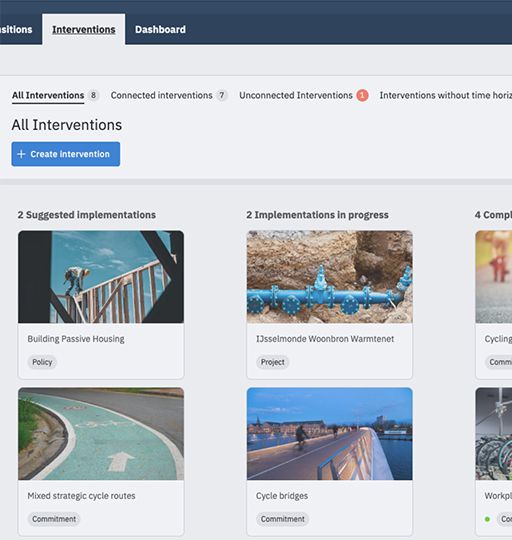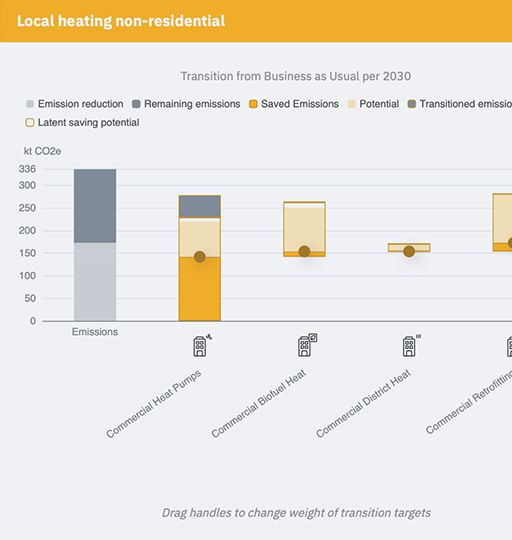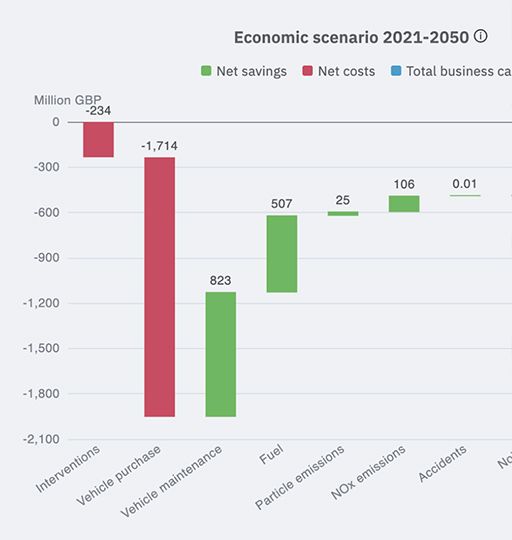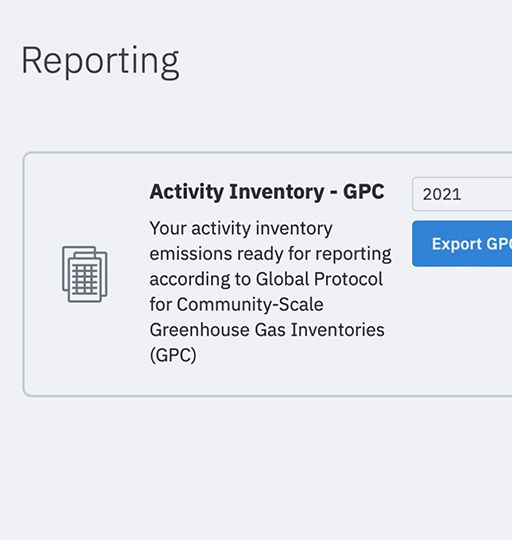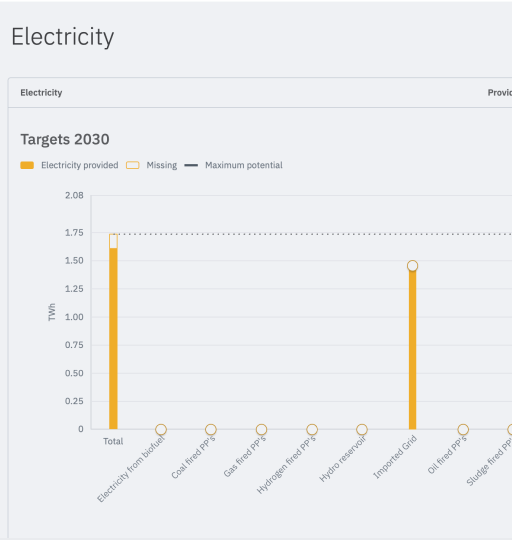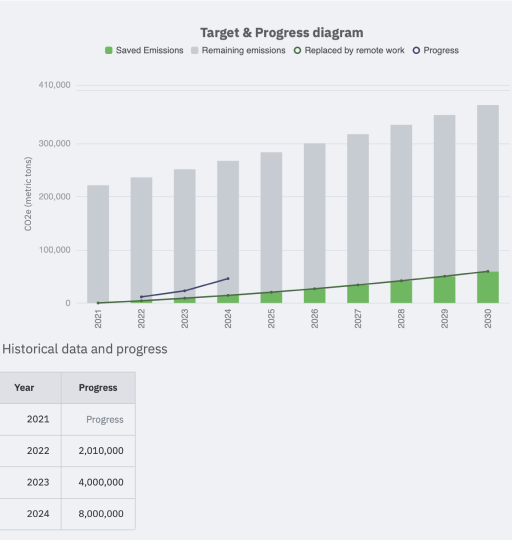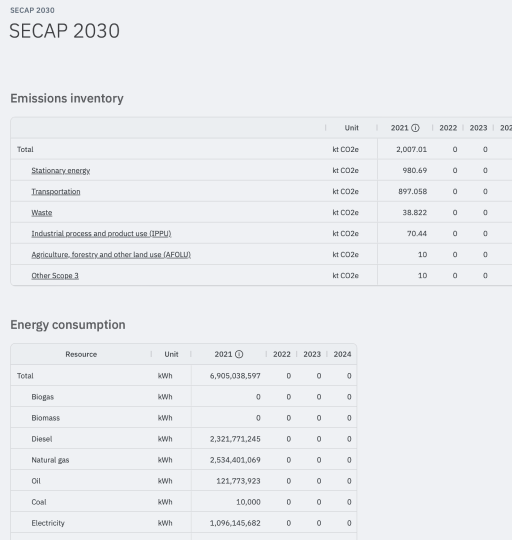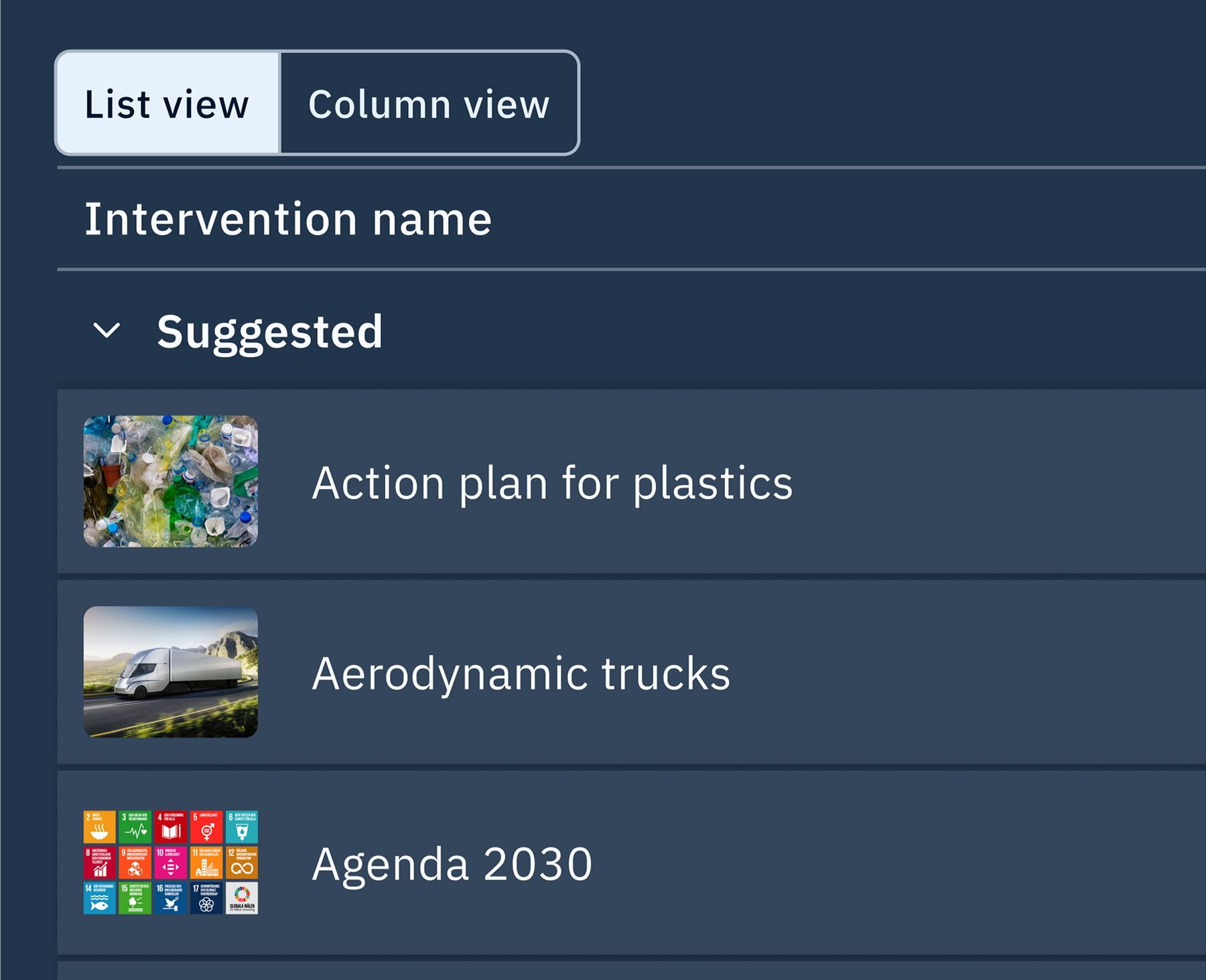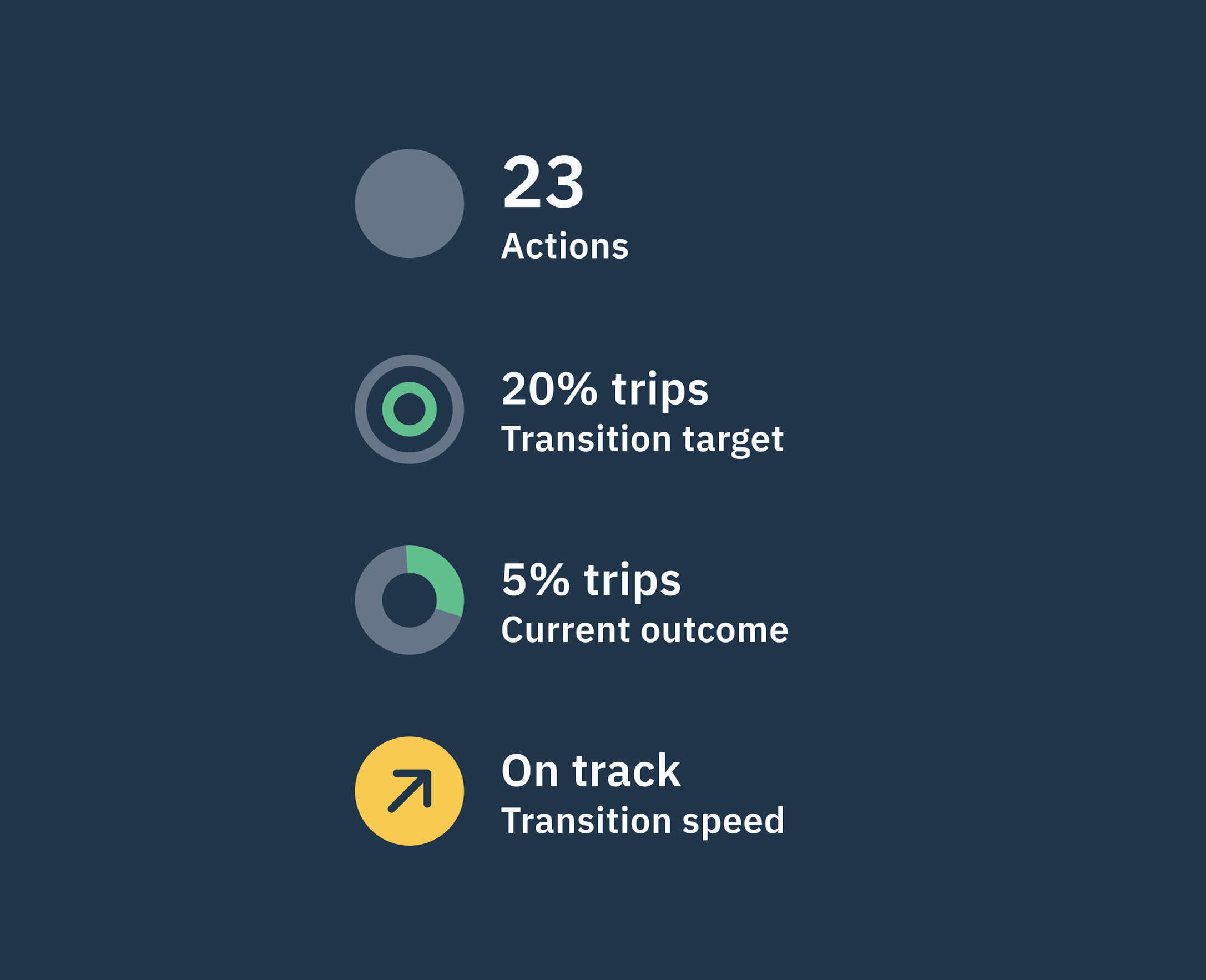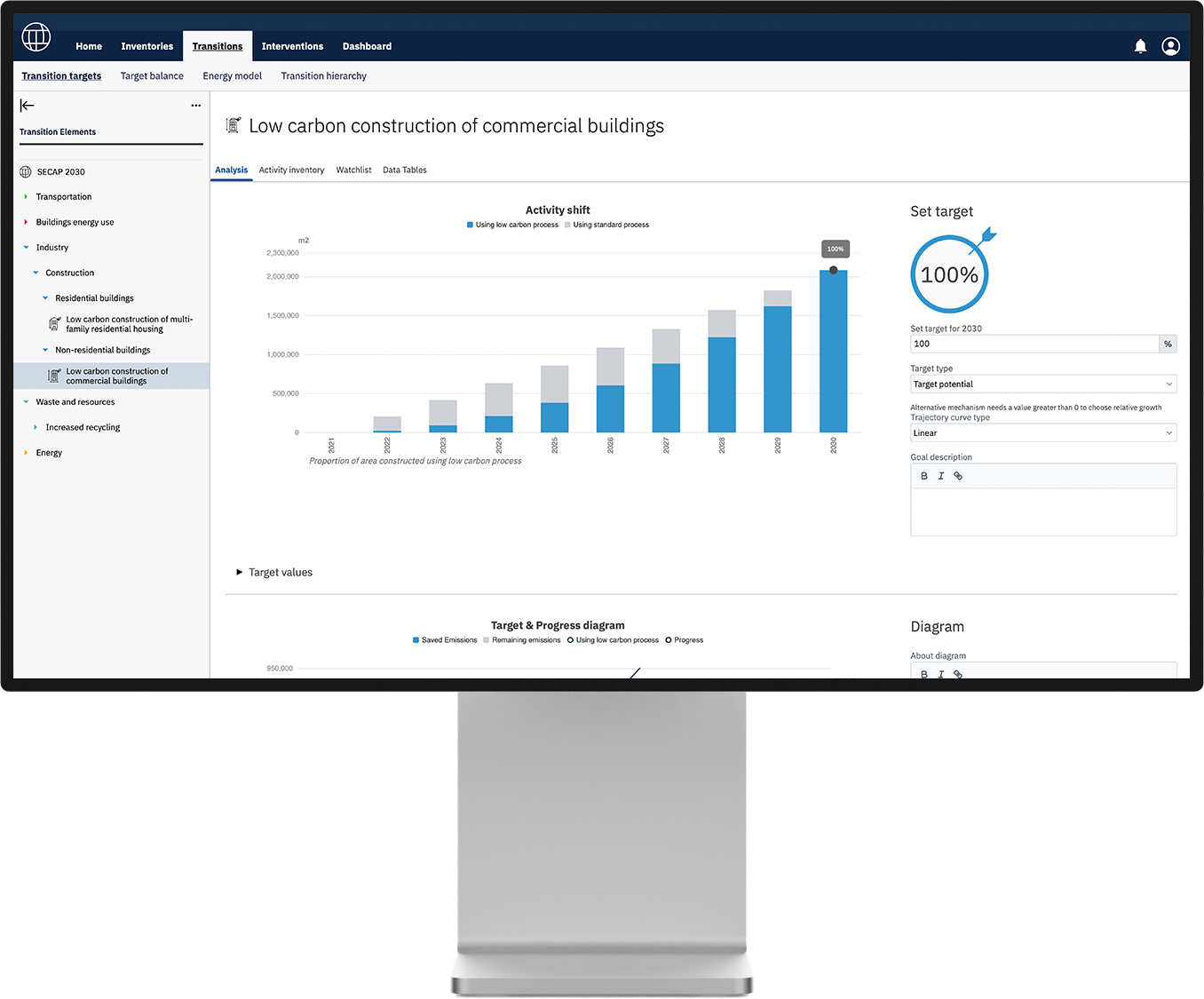
The ClimateView Platform
Scenarios, monitoring, policies, economics, gap analysis, activities, resources, energy, emission factors, interdependencies, and more. On one platform.
A new industry standard.
The ClimateView Platform, built on industry leading technology, helps local and global governments create understandable, actionable and achievable transition plans.
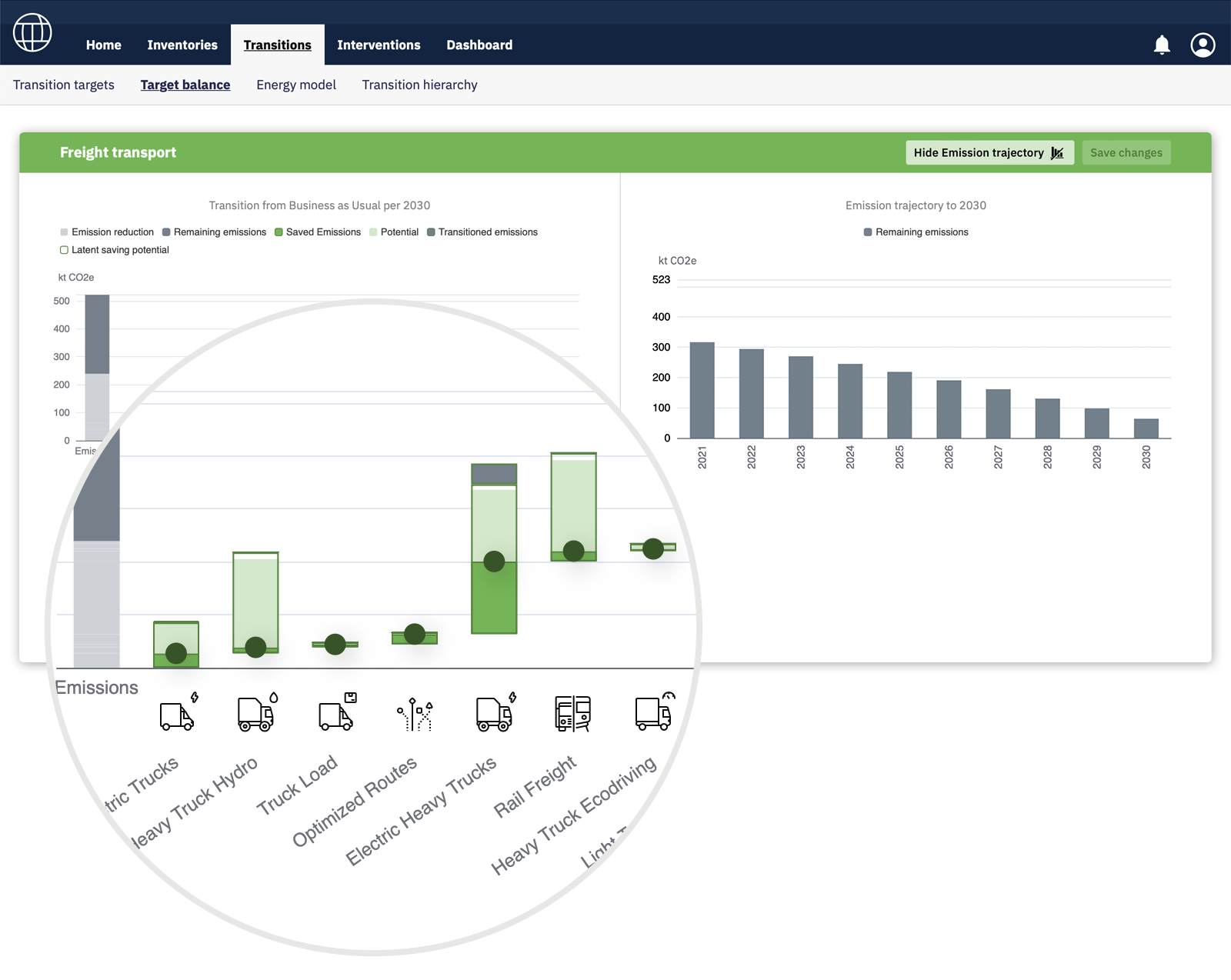
Embrace the whole transition.
From seamlessly integrating existing data and efforts, to creating real, actionable outputs. The ClimateView platform is the common workplace where city data make sense and can be used to drive the whole transition.
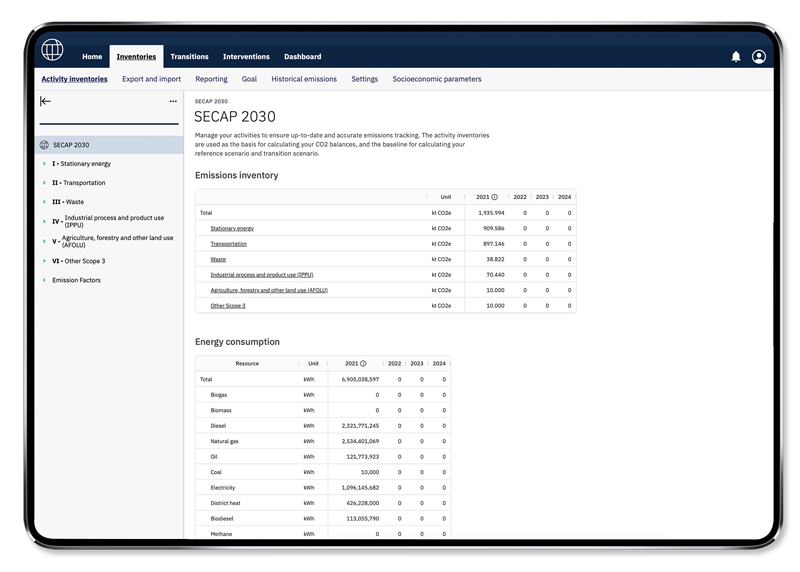
Manage inventories
Centralize your emission data in one platform.
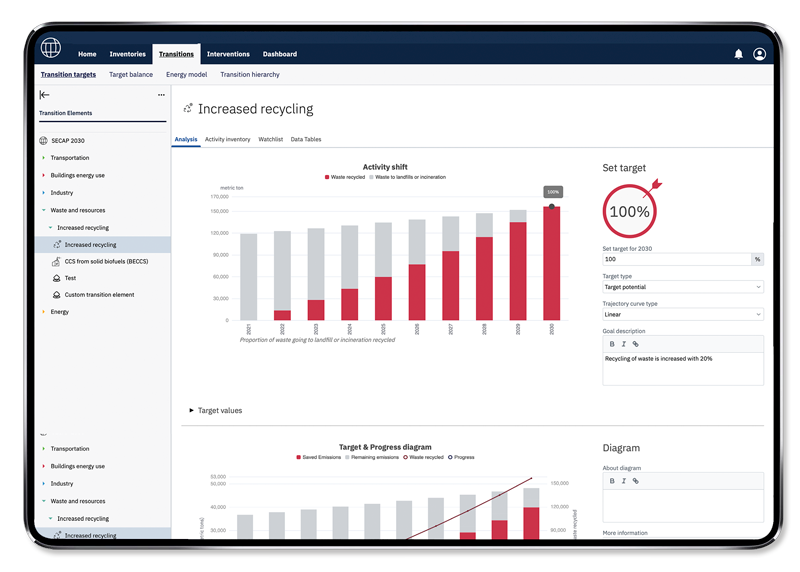
Define strategies
Define relevant transitions and set measurable targets.
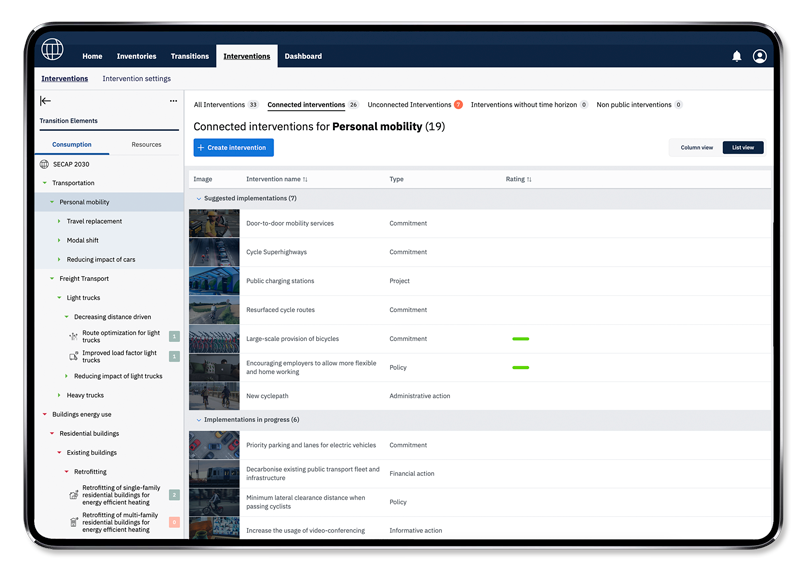
Assess interventions
Create, evaluate and monitor interventions and their impacts.
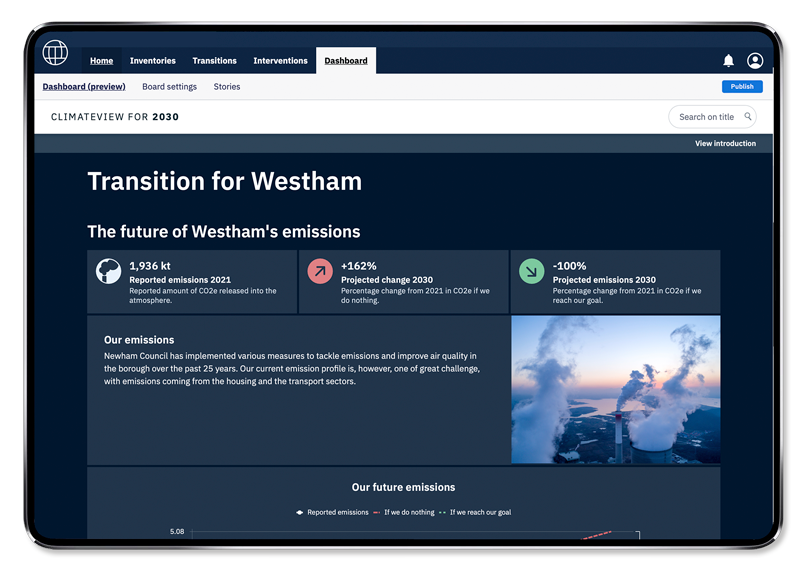
Share dashboards
Coordinate stakeholders and communicate progress.
Everything is interconnected.
The platform ties the entire transition together, enabling future scenario forecasting, generating deep insights, allowing for monitoring, and making data actionable.
“Like a spider web, every thread is connected. When one part moves, the entire web adjusts, just like how actions in one sector impact the whole city’s climate strategy.”
Anna Westerberg, VP Product Design, ClimateView
Align stakeholders with shared dashboards.
The platform enables everyone to view the current state, track progress, and dynamically plan future scenarios.
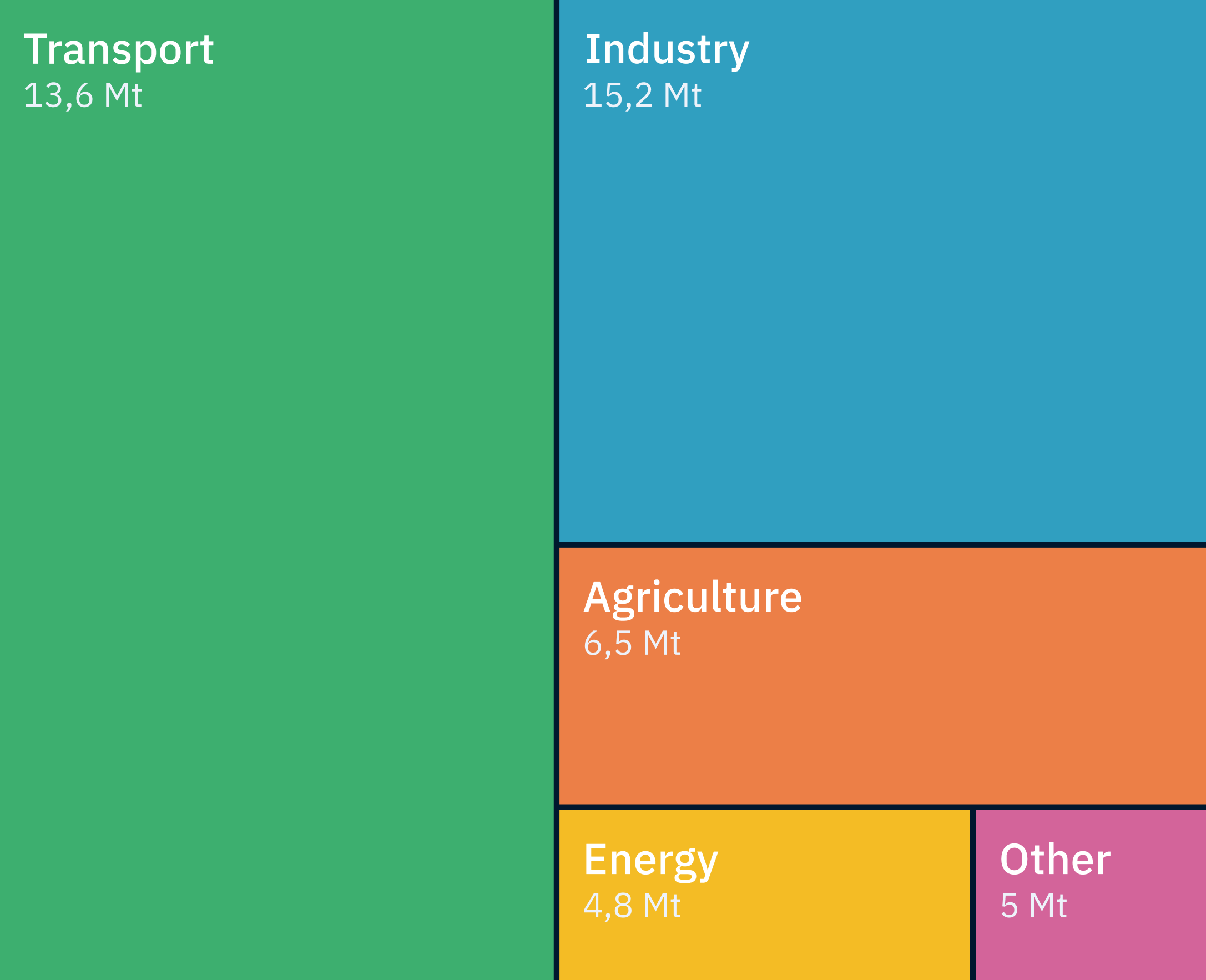
What is the current state?
The platform enables everyone to view the current state, track progress, and dynamically plan future scenarios.
See example
”By publishing our climate action plan via
the platform, the actors can pull together and shape the priorities in Heidelberg together.”
Prof. Dr. Eckart Würzner, Mayor, Heidelberg
Be compliant.
Make reports.
Reporting on projects, finances, Nationally Determined Contributions (NDCs) or Sustainable Development Goals (SDGs). The platform is ready for reporting to global protocols like the Carbon Disclosure Project (CDP).
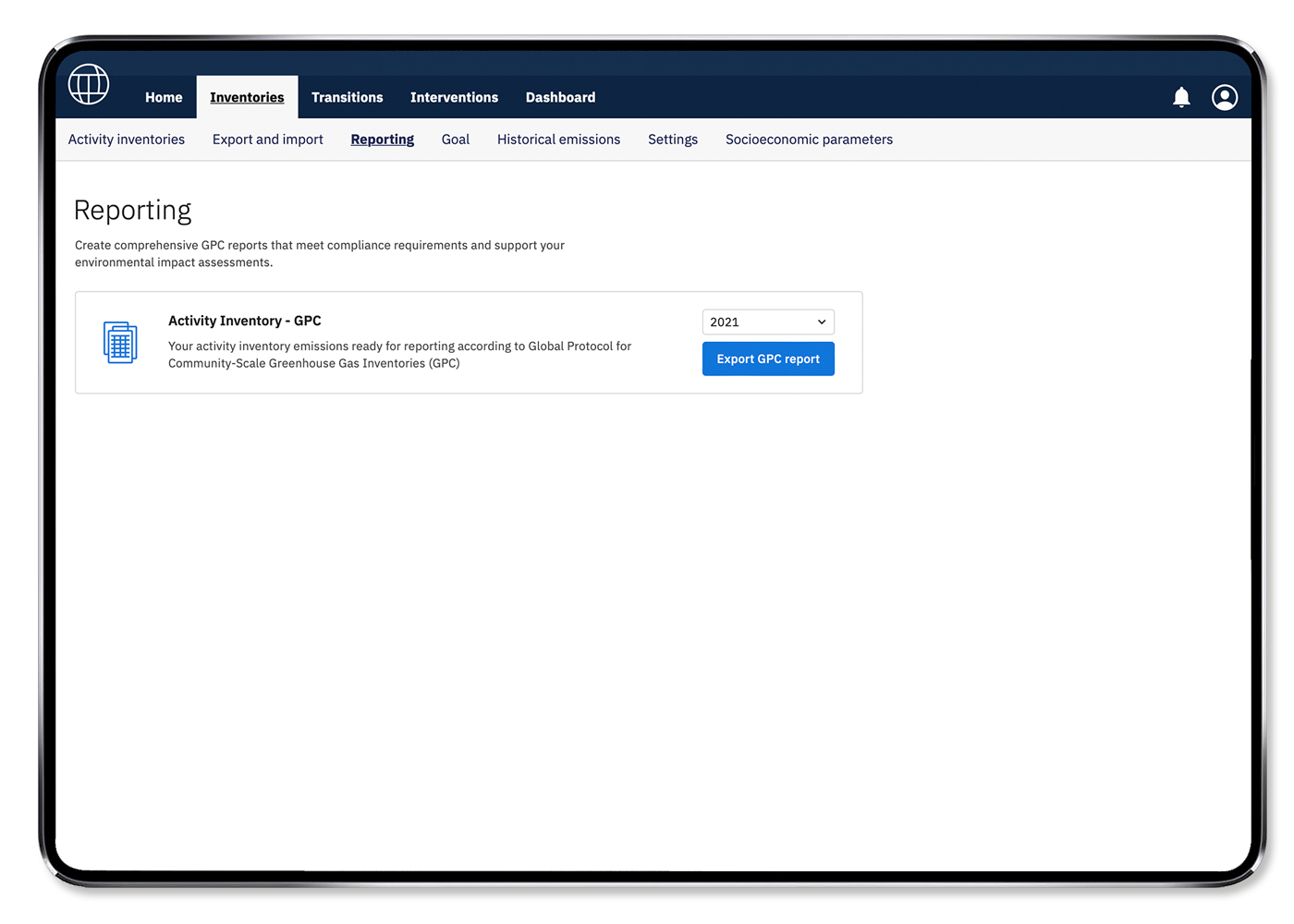
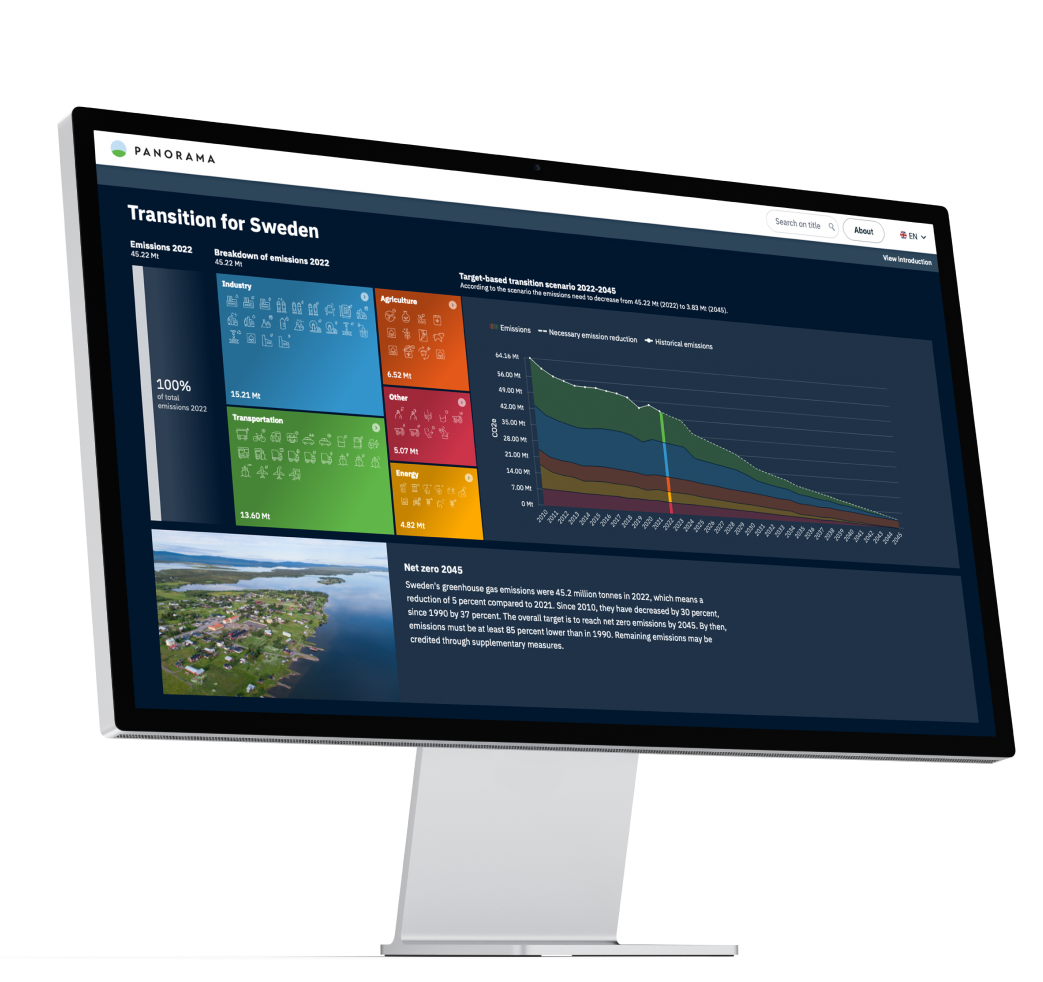
A platform engineered
for continuous change.
Cities, regions and nations can adapt seamlessly to evolving regulations and needs with a flexible platform engineered for a changing world.
A reliable foundation for decision-makers.
The sustainability transition demands significant investments, and decisions must be based on reliable information. ClimateView's platform provides a reliable foundation for all decision-makers.

Globally validated development.
ClimateView’s platform is built and tested with Sweden's leading climate agencies and over 130 cities worldwide, ensuring its effectiveness and reliability.
It has been selected by top consulting firms and validated by regions like Scotland and the Netherlands, standing out in the global market for climate planning.

Science-based and transparent.
Grounded in IPCC Mitigation Options and global emission standards, ClimateView’s platform operates on a transparent, open-source framework.
It uses publicly available data from various sources and ensures full data control and logging, providing stakeholders with trustworthy and scientifically backed decision support.

Turning visions
into plans.
The platform transforms climate visions into actionable plans by offering annual, transparent KPIs and frameworks for managing both measurable and qualitative actions.
It helps quantify costs and returns, supporting experts, decision-makers, and the public with comprehensive scenario analysis and clear visualizations.

Adaptive, cross-sector support.
Designed to integrate data across sectors like energy, mobility, and waste, the platform connects all facets of a city’s climate plan.
It enables dynamic modeling, adapting to evolving circumstances, and supports continuous updates, ensuring decisions remain relevant in a rapidly changing world.
